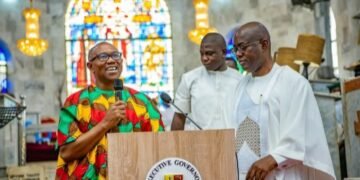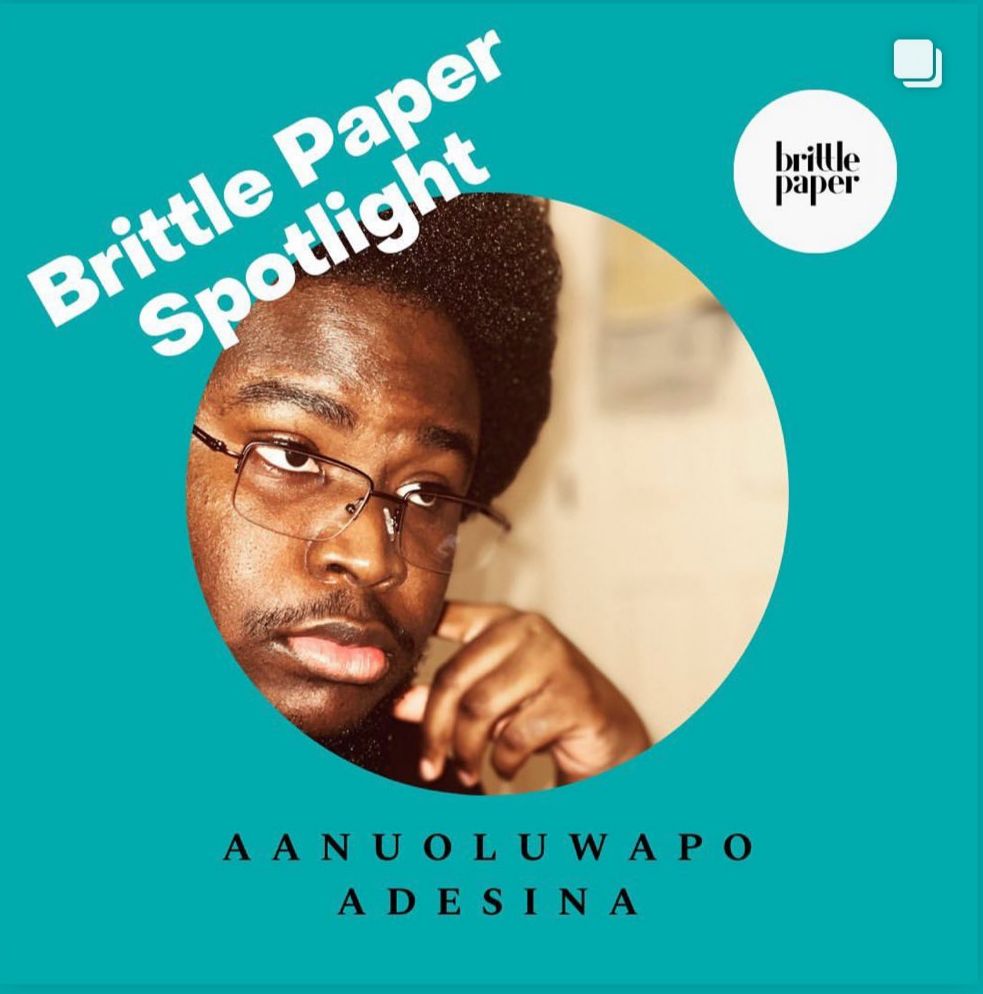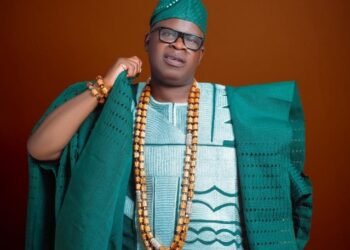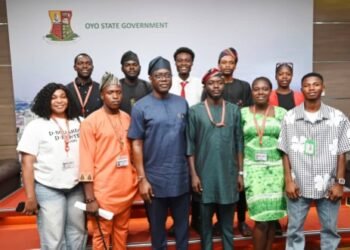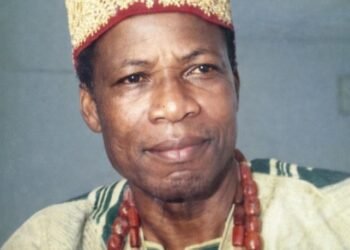Honour For Aanuoluwapo Adesina
Brittle Paper Spotlight, a monthly series featuring emerging writers whose work have been published here on Brittle Paper. Aanuoluwapo Adesina is Brittle Paper Writer of the Month, whose fiction and poetic talent have thrice graced it November publications.
Born in Ibadan, Nigeria, Aanu went on to earn his B.A. in English and Creative Writing from Coventry University, in the United Kingdom, graduating with First Class Honours. He later attained his M.A. in Professional Writing from Kennesaw State University, Georgia, USA. Adding to the growing list of academic accomplishments, he is currently pursuing an MFA in Creative Writing at Butler University.
His accolades do not stop there as Aanu has also authored a poetry collection titled Emocean, won the 2016 Nandos Poetry Prize in the UK, was shortlisted for the Jane Martin Poetry prize in 2017, and was longlisted for the Africa@2050 Climate Fiction Competition, the African Writers Awards, and the Wakini Kuria Prize for Children’s Literature in 2021.
With such an impressive academic and creative background, it is no surprise that Aanu has contributed so significantly to Brittle Paper in the past month with pieces such as “When the Bees Sing”, “Not African Enough It Would Seem”, and “A Letter to a Dying Love”, the latter of which can be heard being recited by Aanu here.
Brittle Paper Spotlight had an interview with its newest Spotlight star, Aanuoluwapo Adesina, adapted by Newscoven.ng:
Your name has appeared on Brittle Paper even before your work has when you were longlisted for two prizes earlier this year. When did you first start writing and what inspired you to take up your craft?
That is correct. I did find out earlier in the year, probably sometime in August, that Brittle Paper had published the Longlists for the 2021 African Writers Awards and the Wakini Kuria Prize for Children’s Literature—both of which I appeared in. I was very excited to have been featured on Brittle Paper, at least in some fashion.
As for when I first started writing, I was five years old. Both my parents are history professors, so there always were books around the house that one could read, particularly history and literature. I remember my father would give me a piece of printing paper and a pen, with which I would write down whatever story had been forming in my head. He would then allow me to get on his computer, where I would type the story on Microsoft Word. He would then print it out and staple it in the form of a book. And voila! Fresh off the press, a new book was published (laughs). My parents kept many of such books I wrote. I reckon there are still some around the house somewhere.
So, in terms of who inspired me to write, I’d say both my parents did. I would always see books that they had authored or edited, up on the shelves in the home library. I remember always wanting to one day have my name on a book, the way I saw theirs. So, shout out to you Prof. Olutayo Adesina and Dr Oluwakemi Adesina, aka dad and mum.
That’s a really beautiful way to get started as a writer and to have such support and influence from a young age already. Now that you’re grown up though, is there an author who you look up to?
I look up to Professor Niyi Osundare. I consider him a great poet and writer. I really got into his poetry, sometime in early 2020. I appreciate the fact that his poetry has a timeless character about it that is quite palpable. His poem, “Not My Business” and his poetry collection, “The Eye of the Earth”, are such examples of his works that I consider timeless, particularly in the ways in which they examine themes of corruption, egocentrism, nature, and global warming. I hope to also, one day, produce works that will remain relevant, especially in the way they engage with themes related to the human condition.
As always, we throw in an easy question before jumping back into the serious ones. What are your top three movies?
This will be quite easy. I’m a huge fan of Lars Von Trier, and three of my top movies also happen to be made by him. These are Antichrist, Nymphomaniac Volume I and Nymphomaniac Volume II.
You have had three pieces published on Brittle Paper in November. First, it was your short fiction piece, “When the Bees Sing,” then your poem, “Not African Enough,” and finally, “A Letter to a Dying Love”. All three pieces are so different. The fiction one was suspenseful yet quirky. Then with the poems, one was about love and the other about socio-political climates. Is it intentional to have your writing cover a wide range or is it a result of writing whatever inspires you in the moment?
As much as the next person, I’d much rather live life doing breaststrokes through vast fields of daffodils and enjoy all the proceeds of a whimsical life. But of course, you and I both know life would never allow us to cash our Never-Never Land cheques. It is this very phenomenon that I like to grapple with in many of my works. You will agree with me that the constant clash between fantasy and pragmatism is a never-ending battle we contend with as human beings.
Then there is the other reason which is that I believe for a person to be considered as alive, they must always be aware of their surroundings if they are to keep being alive. I consider tragedy to be the great em dash of mortal life. This is why, as you must have noticed, I always introduce tragedy in some shape or form in my works, because it destabilizes the reader, and rejects their tendency to choose escape, in times when the presence of mind is required.
A thousand and one things happen in our everyday lives, and somehow, we learn to compartmentalize them and deal with them accordingly. This is what I like to replicate in my works.
Your poetry, as well as the fiction piece, have an overarching similarity in tone. They all have a type of steadfastness, like the speaker is determined to hold their ground, regardless of what has been happening around them or to them. Is this something you actively like to instil in your speakers/protagonists?
At the secondary school I attended in Nigeria—Adesina College Ibadan—my Literature teacher, Mr Bolarinwa Bobola, would always talk about the importance of tone and mood in conducting poetry appreciation. So, on the one hand, you could assess the tone of the poem, but he also encouraged the idea of thinking about how the tone aligned with what you thought the writer’s relationship was with the subject matter. Ultimately, what you would glean from this exercise was, if not entirely, one could in part, catch a glimpse of the poet’s personality, ideologies, and emotions. Ever since he taught us this, I actively began to incorporate this into my writing. To this day, I continue to make this a major feature of my works.
I must confess, I am indeed a very stubborn person (laughs). I am stubborn as a person, in general, and as a writer, in particular. I suppose that is where the steadfast reading of my works comes from. But what happens with this stubbornness is that it coalesces with my passionate side, which allows the reader access to my thoughts and feelings on a given subject matter. I’d say that the greatest effect that this has on the reader, is that it provides a sense that these emotions have been humanized, rather than written in abstraction, thereby making it relatable to the reader.
Brittle Paper readers are wonderful when it comes to commenting and engaging with our artists, and they contribute significantly to the creative community this platform wants to grow and develop. Your work has also been commented on quite a bit. How do you feel about the spaces African artists and writers have in the digital space?
Oh, very much so! The support and encouragement from Brittle Paper’s readers have been wonderful. I often find myself reading their comments, which almost always make me turn into the Cheshire Cat. I’m very grateful for their support.
I’m very glad that spaces such as Brittle Paper, and other spaces, exist for Africans in general. I believe one of the greatest benefits that come with having such spaces for African artists and writers is that it finally helps bridge the gap between creators and their audience. A fan of a certain author can find out what their favourite writer will be publishing soon. Casual readers who like to read stories that they can identify with have many things to read on their commute, thanks to such spaces.
Before we end, what is one thing about yourself, other than your writing, that you want to share with our readers?
Apart from my writing, I’d like to share with readers of Brittle Paper that I have a deep fascination for the Yoruba Pantheon.


